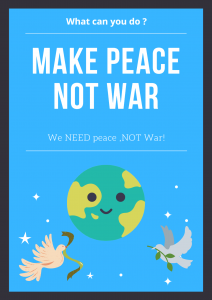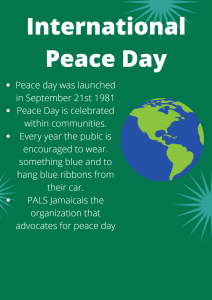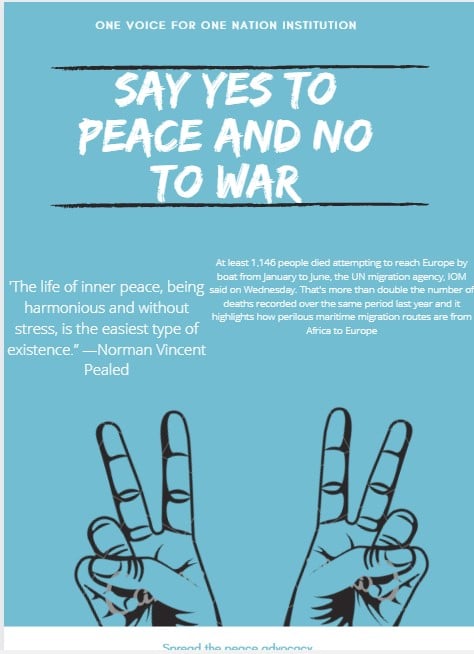"Imagine being a refugee coming to a new country with no friends, family or job. Imagine not being able to understand anything!"
Student, Year 9
The last week of September 2021, the British school together with MasterPeace organised a global goals activities week. Using 2 of MasterPeace concepts: My Life is Art and Act for Liberty.
MasterPeace started with a train the trainer session in which 20 teachers participated. We also created an education pack for the teachers to use in their classrooms. Teachers shared their experiences with us, below a summary.
The Global Goals education pack was effective at introducing the students to collective and individual attitudes, assumptions and feelings we have towards refugees and migrants. Starting with the Boiling Frog Game (element of Act for Liberty), students were presented with challenging questions which promoted discussion and reflection. They acknowledged that there are a myriad of negative and challenging experiences that refugees and migrants face: displacement and isolation, the threat of violence, or death of loved ones.
It is a crisis.
"Immigration has been a key thing for me today… how poorly people get treated... even when they are settled."
So what happens to your self-confidence? To your education and skills, and personal development? To your career path? When you become a refugee. What can we (or host countries) do, to support and help newcomers?
 Students worked in class sets and small groups to consider the different areas that are impacted when people are displaced as migrants, refugees or asylum seekers: Healthcare, Inclusion in the education system, Xenophobia and Fear, Tensions, Access to Resources and Inclusion in the economy. Students were supported by the materials of the My Life is Art package, created by Emmanuel Jal, MasterPeace ambassador.
Students worked in class sets and small groups to consider the different areas that are impacted when people are displaced as migrants, refugees or asylum seekers: Healthcare, Inclusion in the education system, Xenophobia and Fear, Tensions, Access to Resources and Inclusion in the economy. Students were supported by the materials of the My Life is Art package, created by Emmanuel Jal, MasterPeace ambassador.
Unanimously students believed that there was no easy solution. In their peace pledges they described the importance of offering a welcoming place, safety and opportunities. They identified these as key to supporting and promoting welfare. Recognising individuals’ talents and finding ways to reintroduce trade instead of focusing in on money and wealth, which many families will have lost in the process, was also decided as an important factor.
A starting point was to challenge students to investigate the different refugee and migrant experiences around the world and come up with solutions: A Call to Action.
"Peace symbolises: the unity of communities, the acceptance and admiration for various cultures, and respect for everyone"
Student, Year 9
"It was cool creating a solution: problem solving for different social inclusion problems. Like micro-farming to enable communities"
Bruno, Student (Year 9)
What can be done?
- Support through counselling and therapy for those who need help
 with their positive mental health; raise mental health awareness and prevent judgement and ill-will towards migrants.
with their positive mental health; raise mental health awareness and prevent judgement and ill-will towards migrants. - Educate, in schools and society, about different mental illness and ways to better support positive mental health and normalise the discussion of these illnesses.
- Celebrate difference!
- Government Action: provide support where it is needed irrelevant of cost; improved human rights of minority groups.
- Inclusion in the economy: focus on the positive aspects of migrants living in your country such as the introduction of new languages, skills sets and culture.
- Provide visas, which would enable them safer routes when travelling and settling in a new country.
- Complete a skills assessment and offer skills training at refugee camps.
- Produce a Refugee app where individuals can create a profile available to employers.
"It is very difficult to solve, without making unethical or expensive solutions... as well as this, there seem to be no solutions that please everyone. How can you let millions of refugees into one country? How and where do you draw boundaries?"
Student, Year 9
Students made presentations, posters, video recordings and created quizzes where they reflected on what immigration is, what it is to be a refugee and how different economies can support refugees. As well as this, they researched The International Day of Peace and discovered when and where it began. Students discussed the importance of this day and how it needs to be better promoted in schools, society and within families.

"Teaching younger people about the need for Peace and how to promote peace locally is important, like running a sports day and lunch for refugees. Basically, it is about the will to help others. You have to be willing to put yourself in the shoes of others."
Marvin, Student (Year 9)

